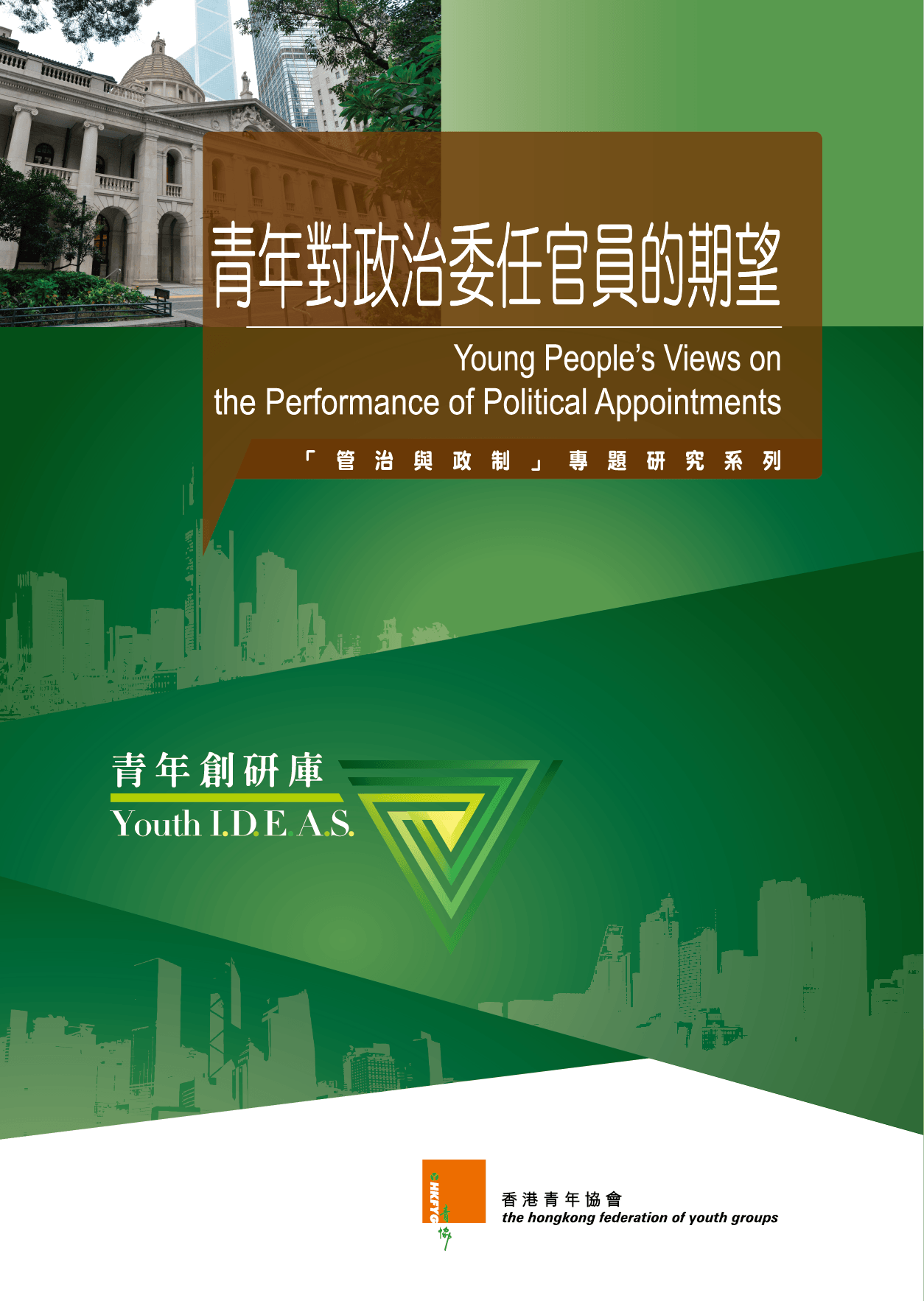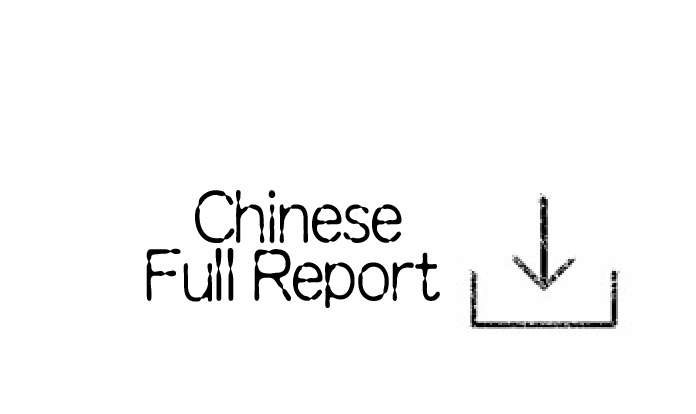Young People’s Views on the Performance of Political Appointments
Youth I.D.E.A.S. 19
Governance and Constitutional Development
Young People’s Views on the Performance of Political Appointments
1 March, 2017
 The HKSAR Government implemented the Principal Officials Accountability System in 2002. Under this new system, the chief executive nominated candidates of high personal integrity and ability from inside and outside the civil service for appointment by the Central People’s Government as principal officials.
The HKSAR Government implemented the Principal Officials Accountability System in 2002. Under this new system, the chief executive nominated candidates of high personal integrity and ability from inside and outside the civil service for appointment by the Central People’s Government as principal officials.
The primary objectives of the system were the following: to strengthen the accountability of principal officials; to ensure better response to the needs of the community; to enhance coordination in policy formulation; to strengthen the cooperation between the executive and the legislature; to ensure effective implementation of policies; and to provide quality services to the public.
In 2008, the government further developed the political appointment system by creating two additional layers of political appointment positions, namely Deputy Directors of Bureau and Assistants to Directors of Bureau. One of the aims was to provide a more comprehensive career path for political talent to pursue. Data from the government showed that the current government received more than 1,100 applications for the above-mentioned two-layer positions. The number was a tenfold increase when compared with the number of applications received by the previous government, showing that more people were interested in joining the politically appointed team.
Along with the society’s development, citizens’ expectations of the politically appointed officials are growing and changing constantly. At the same time, the public are focusing interest on the appointment process, the enforcement of accountability, and the performance of officials.
The next government will begin operations in July 2017. A new team of politically appointed officials will take office in July as well. It is against this background that this research is conducted in an attempt to explore what young people think of the political appointments.
In conducting this research, data were collected for analysis through a random sampling telephone survey in January 2017 of 532 young people aged 15 to 34. Four parallel discussion groups were conducted with a total of 20 young people in January and February. Interviews with five experts or academics were conducted in January.
Discussion
- The political appointment system is in a process of development. Despite the fact that respondents have reservations about the performance of the officials, the system has a role to play in nurturing political talent, and it has room for improvement in the future.
- Young people take a rational approach regarding mechanism for measuring accountability. The communication skills of the officials need to be improved.
- Increasing the transparency of the appointment process could help improve the public’s trust in the officials.
- There has been an increasing demand for political talent. It is worth putting more effort into strengthening and developing the pool for political talent for Hong Kong’s society.
- The political appointment system is implemented without the parallel development of party politics. This is unfavourable to cultivating a governance team with a common agenda. This also intensifies the problem of talent shortage to fill the political team.
- The chief executive leads the governance team. The chief executive should exert his/ her charisma to get a group of people who are competent to run the government.
Recommendation
- Expand the political appointment system to strengthen the nurturing of political talent.
- Establish a formal platform for the officials to share their visions.
- Enhance direct communication between the officials and the public.
- Ensure the governance experience of the officials could be retained and passed on.




